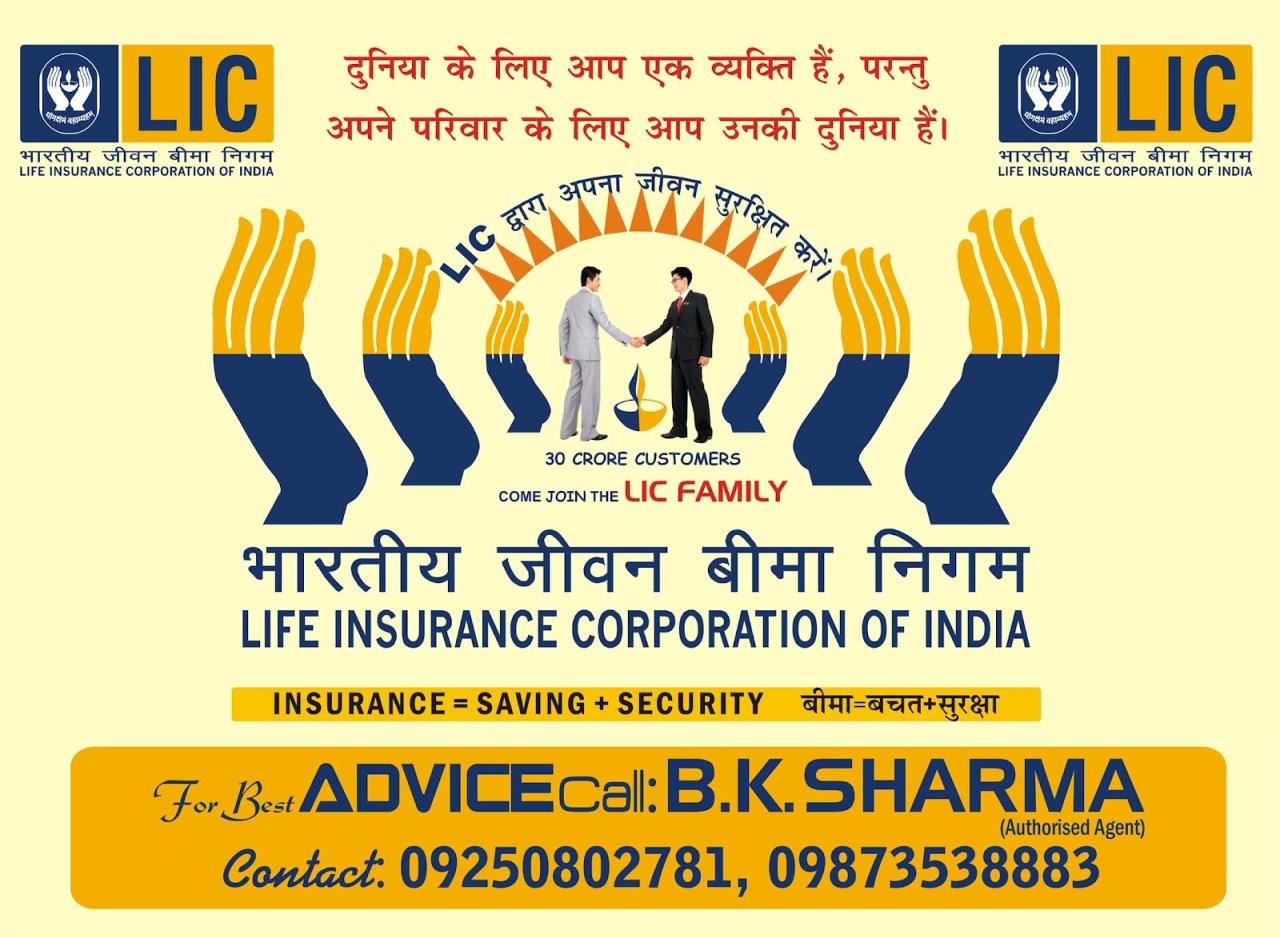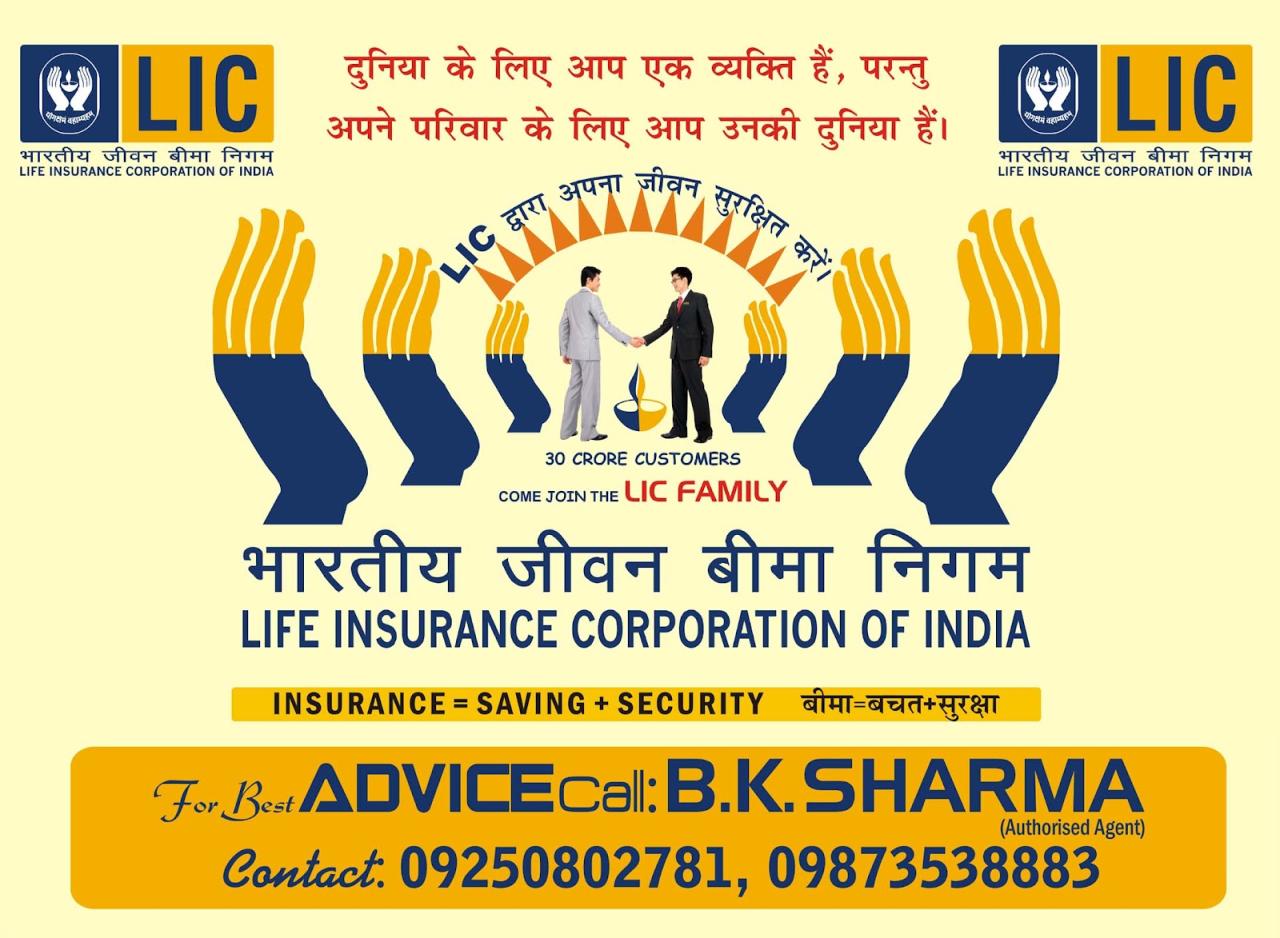Licensing agents are vital intermediaries in a complex world of intellectual property. They bridge the gap between creators and users, facilitating agreements and ensuring the smooth transfer of rights. This guide dives deep into the world of lic agents, exploring their roles, responsibilities, and the essential skills needed to succeed.
From defining the various types of licensing agents to examining the tools and technologies they employ, this comprehensive resource provides a thorough overview. It also examines the critical aspects of client management, communication, and navigating market trends.
Defining “Lic Agent”

A licensing agent acts as an intermediary between creators (rights holders) and users (companies or individuals seeking to utilize the rights). They facilitate the negotiation and execution of licensing agreements, ensuring both parties understand the terms and conditions. This process can involve a wide array of intellectual property, from trademarks and copyrights to patents and designs.
Licensing agents play a crucial role in streamlining the complex process of commercializing intellectual property. They often possess in-depth knowledge of the specific industries they serve, enabling them to effectively represent the rights holders’ interests and guide potential licensees through the licensing process.
Types of Licensing Agents
Licensing agents often specialize in specific types of intellectual property or industries. This specialization allows them to provide highly targeted and expert advice. Some agents might focus on entertainment licensing, while others may concentrate on industrial designs. A critical element of effective representation lies in understanding the nuances of each industry’s licensing practices.
Industries Where Licensing Agents Operate
Licensing agents operate across various sectors. They are essential in industries like entertainment (film, music, gaming), fashion, sports, and technology. The specific types of licenses required and the associated complexities vary significantly between these industries. For example, entertainment licensing often involves complex contracts related to distribution and usage rights, while technology licensing may focus on patent rights and software applications.
Examples of Licensing Agents in Action
A licensing agent for a renowned author might negotiate the rights for their latest book to be adapted into a film script. This involves navigating the intricacies of copyright law, understanding the film industry’s requirements, and ensuring the author’s financial interests are protected. Similarly, a licensing agent specializing in fashion might secure licensing deals for a designer’s brand to be used on a variety of products, such as clothing, accessories, and home goods.
Key Characteristics and Responsibilities of Different Licensing Agents
| Type of Licensing Agent | Key Characteristics | Responsibilities |
|---|---|---|
| Entertainment Licensing Agent | Expertise in entertainment law, familiarity with film, music, and gaming industries. | Negotiating rights for movie adaptations, music use in commercials, and video game licenses. They also handle royalty payments and monitor usage. |
| Fashion Licensing Agent | Deep understanding of fashion trends, brand identity, and intellectual property rights in the fashion sector. | Securing licensing agreements for designers’ designs to be used on various products. Managing licensing contracts and ensuring adherence to brand standards. |
| Technology Licensing Agent | Thorough knowledge of intellectual property laws, particularly in the technology sector, including patents, trademarks, and copyrights. | Facilitating the licensing of patents, software, and other technological innovations. Negotiating terms and ensuring proper usage rights are granted. |
Responsibilities and Duties
Licensing agents act as intermediaries between creators and users of intellectual property, facilitating the licensing process. Their role is crucial in ensuring that both parties understand the terms and conditions, protecting the rights of the creators while enabling the users to utilize the licensed material.
A licensing agent’s responsibilities extend beyond simply processing paperwork. They often need a comprehensive understanding of the specific industry they serve, including the market trends, legal nuances, and ethical considerations surrounding the intellectual property being licensed. This involves proactive communication, thorough research, and skillful negotiation.
Typical Responsibilities
Licensing agents are responsible for a wide array of tasks. This includes identifying potential licensing opportunities, contacting potential licensees, and negotiating favorable licensing agreements. They also oversee the entire licensing process, ensuring compliance with legal and ethical standards. A key aspect of their role is managing client expectations and maintaining positive working relationships.
Steps in the Licensing Process
The licensing process, from a licensing agent’s perspective, involves several key steps. First, a thorough understanding of the intellectual property, its potential value, and the market landscape is essential. This is followed by identifying potential licensees and establishing contact. Negotiating the terms of the license agreement, including the scope of use, duration, and compensation, is a crucial part of the process. Finally, ensuring all parties understand and agree to the terms of the agreement and overseeing its execution is essential.
Legal and Ethical Considerations
Licensing agents must be acutely aware of the legal and ethical considerations involved. They need a solid grasp of copyright law, trademark law, and other relevant legal frameworks, ensuring that all transactions comply with applicable regulations. Maintaining confidentiality, avoiding conflicts of interest, and acting with integrity are fundamental ethical considerations. Understanding and adhering to these standards protects both the licensor and the licensee.
Industry-Specific Duties
The responsibilities of a licensing agent can vary depending on the industry. In the entertainment industry, for example, agents might focus on licensing film rights, music, or character designs. In the fashion industry, they might handle licensing of trademarks or designs for clothing and accessories. In the technology industry, they could be involved in licensing software, patents, or other intellectual property. Understanding the specifics of each industry is critical to successfully navigating the licensing process.
Daily Tasks
| Task Category | Description |
|---|---|
| Client Communication | Maintaining regular contact with clients, addressing queries, and providing updates on the licensing process. |
| Market Research | Staying abreast of market trends, identifying potential licensees, and evaluating the commercial value of the intellectual property. |
| Negotiation | Crafting and negotiating licensing agreements that are mutually beneficial for both parties, addressing various aspects such as usage rights, duration, and compensation. This often involves careful consideration of the potential risks and rewards. |
| Administrative Tasks | Handling paperwork, maintaining records, and ensuring compliance with legal requirements. This includes tasks such as drafting contracts, tracking payments, and managing licensing databases. |
Skills and Qualifications

A successful licensing agent requires a unique blend of technical expertise, interpersonal skills, and business acumen. This multifaceted approach allows them to navigate the complexities of the licensing process and effectively represent their clients’ interests. A strong foundation in communication, negotiation, and market understanding is crucial for forging lasting relationships and driving successful licensing deals.
Effective licensing agents possess a deep understanding of intellectual property law, market trends, and industry best practices. This knowledge base empowers them to make informed decisions, negotiate favorable terms, and manage potential risks. Furthermore, their ability to anticipate challenges and adapt to changing circumstances is essential for achieving positive outcomes.
Essential Skills
Understanding the intricacies of licensing agreements, intellectual property rights, and the specific needs of clients is fundamental. These skills are crucial for successfully navigating the legal and commercial aspects of the licensing process. Proactive communication, negotiation, and problem-solving abilities are equally vital for fostering strong client relationships and overcoming obstacles.
- Strong communication skills, both written and verbal, are paramount for conveying complex information clearly and concisely to clients and partners.
- Negotiation skills are critical for securing favorable terms and resolving disputes during the licensing process.
- Problem-solving skills are essential for identifying and addressing potential challenges and ensuring smooth transitions in complex licensing deals.
- A thorough understanding of intellectual property law, including patents, trademarks, and copyrights, is necessary for effective licensing practices.
- Proactive research skills are vital for staying abreast of industry trends and emerging opportunities.
Importance of Networking and Relationship-Building
Networking and relationship-building are cornerstones of success in the licensing industry. Building strong professional relationships with potential clients, licensors, and industry peers fosters trust, facilitates collaboration, and opens doors to future opportunities. Cultivating these relationships takes time and effort but yields significant rewards. This is not just about initial contact; it’s about maintaining ongoing connections, sharing knowledge, and fostering mutual respect.
- Networking expands professional connections, enabling access to potential clients and licensors.
- Strong relationships foster trust and facilitate collaboration, ultimately leading to successful licensing deals.
- Maintaining ongoing communication and providing valuable insights to contacts cultivates long-term partnerships.
- Industry events and conferences offer valuable networking opportunities to connect with professionals and stay updated on industry trends.
Qualifications and Experience
Potential licensing agents should possess a combination of educational background, relevant experience, and demonstrated expertise. A bachelor’s degree in business administration, law, or a related field is often beneficial. Prior experience in sales, marketing, or legal matters can provide valuable insight into the nuances of the licensing process. Additionally, a proven track record of success in client management and negotiation is highly desirable.
- A bachelor’s degree in a relevant field such as business administration, law, or marketing can provide a strong foundation.
- Prior experience in sales, marketing, or legal matters is advantageous, offering practical understanding of the licensing process.
- Proven ability to manage client relationships effectively, demonstrating responsiveness and proactive communication.
- Demonstrated experience in negotiation and conflict resolution is crucial for successfully navigating licensing agreements.
Role-Specific Skills and Qualifications
Different licensing agent roles require varying skill sets and qualifications. The table below highlights the essential attributes for various positions:
| Role | Essential Skills | Qualifications |
|---|---|---|
| Licensing Agent (General) | Strong communication, negotiation, and problem-solving skills; basic IP knowledge. | Bachelor’s degree in business administration or related field; some experience in sales or client relations. |
| IP Portfolio Manager | Advanced IP knowledge; portfolio management skills; strategic thinking. | Master’s degree in IP law or related field; substantial experience in IP management. |
| Licensing Consultant | Deep industry knowledge; specialized knowledge in a particular sector; advisory skills. | Master’s degree in business or law; significant experience in the target industry. |
Client Management Implications
These skills and qualifications directly translate into effective client management. Licensing agents who possess strong communication and negotiation skills can build trust and foster open communication with clients, ensuring that their needs are met and their expectations are exceeded. A proactive approach, coupled with thorough understanding of licensing agreements, allows for effective risk management and proactive problem-solving, resulting in successful client outcomes.
Tools and Technologies
Licensing agents rely heavily on a variety of software and digital platforms to manage complex licensing processes efficiently. Modern tools streamline communication, facilitate collaboration, and enhance data management, allowing agents to focus on strategic tasks rather than administrative burdens. This section explores the essential tools and technologies employed in the licensing industry.
Common Software and Tools
Licensing agents leverage a range of software applications to manage their tasks. These tools provide centralized platforms for tracking licenses, negotiating terms, and ensuring compliance. Specialized software packages handle tasks such as contract management, royalty calculation, and reporting.
- Contract Management Software: These platforms allow agents to create, store, and manage licensing agreements. They typically include features for version control, tracking deadlines, and ensuring compliance with legal requirements. Examples include tools like Adobe Sign and DocuSign.
- Database Management Systems: Licensing agents utilize database systems to organize and store vast amounts of information about clients, licenses, and intellectual property. This data allows for efficient retrieval and analysis, essential for informed decision-making.
- Royalty Calculation Software: These programs automate the process of calculating and distributing royalties based on agreed-upon terms. This helps ensure accuracy and fairness in royalty payments and reduces potential disputes.
Digital Platforms for Licensing Processes
Numerous digital platforms facilitate various aspects of the licensing process. These platforms often offer secure communication channels, document sharing, and streamlined workflows.
- Online Licensing Portals: Many organizations utilize online portals to allow clients to access and manage their licenses, pay fees, and submit requests. This streamlines communication and significantly reduces administrative overhead.
- Intellectual Property Management Systems (IPMS): These systems offer comprehensive solutions for managing and tracking intellectual property assets, including patents, trademarks, and copyrights. This centralized system can be instrumental in licensing procedures.
- E-signature Platforms: The use of e-signature platforms has become crucial for streamlining the agreement process. These platforms offer secure and legally binding methods for signing and managing contracts.
Role of Technology in Communication and Collaboration
Technology plays a critical role in streamlining communication and collaboration within the licensing industry.
- Cloud-Based Collaboration Tools: Cloud-based platforms, such as Slack and Microsoft Teams, enable seamless communication and file sharing among licensing agents, clients, and other stakeholders. This ensures that everyone has access to the most up-to-date information.
- Project Management Software: Project management tools provide a structured approach to managing licensing projects. This facilitates efficient task allocation, tracking progress, and ensuring timely completion of projects.
Importance of Data Management
Effective data management is critical for licensing agents. Accurate and organized data allows for informed decision-making, efficient workflow management, and compliance with legal requirements.
- Data Integrity: Maintaining data integrity is paramount to ensure the accuracy and reliability of licensing information. This prevents errors in calculations and ensures compliance with licensing agreements.
- Data Security: Protecting sensitive licensing data is essential to prevent unauthorized access and maintain confidentiality. Implementing robust security measures is vital for compliance and trust.
- Data Analysis: Analyzing licensing data can provide valuable insights into trends, client preferences, and market demands. This data-driven approach can inform strategic decisions and optimize licensing strategies.
Software Tool Comparison
The choice of software tools depends on specific needs and budgets. Different tools offer various features and functionalities, leading to advantages and disadvantages.
| Software Tool | Advantages | Disadvantages |
|---|---|---|
| Contract Management Software (e.g., DocuSign) | Streamlined contract process, secure e-signatures, reduced paperwork | Potential cost, complexity for small businesses |
| IP Management Systems | Centralized IP management, enhanced tracking, improved collaboration | High initial investment, potential for complexity |
| Royalty Calculation Software | Automated royalty calculations, reduced errors, increased accuracy | Cost, dependence on the system for calculation |
Market Trends and Challenges

The licensing agent industry is constantly evolving, driven by technological advancements and shifting market dynamics. Navigating these changes requires a keen understanding of current trends, emerging technologies, and the challenges inherent in the sector. This section provides an overview of the key forces shaping the licensing agent landscape.
The licensing agent market is experiencing significant transformations, from the rise of online platforms to the increasing demand for specialized expertise. This dynamic environment presents both opportunities and hurdles for agents, necessitating adaptability and strategic planning to maintain competitiveness.
Current Market Trends
The licensing agent industry is influenced by various market trends. These trends include the increasing popularity of digital media, the growing demand for intellectual property (IP) protection, and the globalization of markets. These factors have created a need for agents with diverse skill sets and a global outlook. They need to effectively leverage the latest technologies and adapt to changing regulatory landscapes.
Emerging Technologies Influencing Licensing
The licensing process is being reshaped by innovative technologies. Digital platforms and artificial intelligence (AI) tools are streamlining tasks such as IP searches, contract negotiations, and royalty tracking. These advancements are making the process more efficient and transparent, offering agents new avenues for growth. Examples include AI-powered tools that can automatically analyze contracts for potential ambiguities or discrepancies, accelerating the due diligence process. This technology can reduce the time and cost associated with traditional licensing procedures.
Common Challenges Faced by Licensing Agents
Licensing agents face numerous challenges in today’s market. Competition is fierce, especially with the emergence of new players and the rise of freelance agents. Maintaining a strong portfolio of clients and securing favorable licensing agreements are ongoing priorities. Furthermore, agents must stay informed about the ever-changing legal and regulatory frameworks impacting licensing, including international trade agreements. This complexity necessitates a deep understanding of international IP law and regulations, a significant challenge for many agents.
Factors Driving Growth or Decline of Licensing Sectors
Different licensing sectors experience varying growth and decline patterns. The entertainment sector, for example, is frequently affected by fluctuations in film production and streaming platform popularity. The demand for entertainment licenses often correlates with box office success or streaming platform viewership figures. Similarly, the demand for technology licenses is often influenced by technological advancements and market trends within the tech industry. These factors can affect the success and profitability of specific sectors within the licensing market.
Competitive Landscape in the Licensing Agent Market
The licensing agent market is characterized by diverse players, ranging from large, established firms to smaller, specialized agencies. Competition is often intense, requiring agents to differentiate themselves based on specialized expertise, established networks, and a proven track record. Agents with strong industry connections and a deep understanding of specific sectors, such as fashion or gaming, often hold a competitive advantage. A robust online presence and effective marketing strategies are essential to attract and retain clients in this competitive environment. Agents need to continuously adapt to maintain their market position.
Client Management and Communication

Effective client communication is paramount for licensing agents, directly impacting client satisfaction and business success. Building trust and fostering strong relationships are key to long-term partnerships. Clear and consistent communication ensures clients feel valued and informed throughout the licensing process.
Strong client relationships are built on consistent communication and responsiveness. Agents who proactively engage with clients, understanding their specific needs and concerns, are more likely to cultivate lasting partnerships. This includes anticipating potential issues and addressing them promptly, fostering a sense of security and reliability.
Importance of Effective Client Communication
Maintaining open lines of communication with clients is crucial for a licensing agent’s success. Proactive communication demonstrates a commitment to client satisfaction and builds trust, ultimately leading to repeat business and positive referrals. Regular updates and transparent communication prevent misunderstandings and anxieties, ensuring clients feel confident in the agent’s capabilities.
Strategies for Building Strong Client Relationships
Building strong client relationships involves active listening, understanding client needs, and anticipating potential challenges. Personalized communication, tailored to each client’s unique situation, fosters a sense of value and strengthens the agent-client bond. Agents should strive to exceed client expectations by anticipating needs and providing proactive support.
Methods for Providing Regular Updates and Progress Reports
Regular updates and progress reports are vital for maintaining client trust and transparency. These reports should be clear, concise, and easily understandable, providing a summary of key developments and expected timelines. Using various communication channels, such as email, phone calls, and online portals, allows agents to deliver updates effectively and cater to client preferences.
Best Practices for Resolving Client Issues and Concerns
Addressing client issues promptly and effectively is crucial for maintaining positive relationships. Agents should actively listen to concerns, empathize with the client’s perspective, and work collaboratively to find suitable solutions. A proactive approach, including anticipating potential problems, can mitigate the likelihood of issues arising. Maintaining a calm and professional demeanor is essential during problem-solving.
Communication Channels Used by Licensing Agents
Effective communication utilizes various channels to cater to different client preferences. A diverse approach ensures all clients receive the necessary information in a manner that best suits their needs.
| Communication Channel | Description | Advantages | Disadvantages |
|---|---|---|---|
| A widely used channel for sending formal updates and documents. | Cost-effective, easily accessible, and allows for detailed information. | Can be impersonal, lacks immediate feedback, and may not be suitable for urgent issues. | |
| Phone Calls | Direct communication that facilitates immediate feedback and discussion. | Provides immediate clarification, fosters personal connection, and allows for detailed explanations. | Can be time-consuming, requires scheduling, and may not be suitable for all types of information. |
| Online Portals/Dashboards | Specialized platforms for providing real-time updates, progress reports, and document access. | Provides 24/7 access, enables self-service for clients, and allows for secure data management. | Requires client familiarity with the platform, may not be suitable for all client types, and technical issues may arise. |
| Video Conferencing | Facilitates face-to-face interaction, allowing for a more personal and collaborative approach. | Allows for visual communication, fostering trust and enabling clear explanations of complex issues. | Requires scheduling, may not be suitable for all clients, and technical difficulties can occur. |
Case Studies
Licensing agents face a dynamic and competitive landscape. Understanding successful strategies, challenges, and lessons learned is crucial for navigating the complexities of the industry. Case studies provide valuable insights into effective practices, enabling agents to adapt to market changes and enhance their negotiation skills.
Analyzing successful licensing agent strategies, challenges, and negotiations offers a practical approach to learning. These case studies highlight the importance of adaptability, market analysis, and strong client relationships in achieving positive outcomes.
Successful Licensing Agent Strategies
Successful licensing agents often employ a multifaceted approach that combines in-depth market research with targeted client outreach. They leverage their understanding of industry trends, competitor analysis, and potential market gaps to identify lucrative opportunities. A proactive approach, including networking events and industry conferences, can significantly enhance visibility and lead generation. Maintaining strong relationships with both licensors and licensees is essential for building trust and fostering long-term collaborations.
Challenges Faced by Licensing Agents
Licensing agents frequently encounter challenges related to valuation, negotiation, and contract complexities. Difficulties in securing favorable terms for both parties, including royalties, exclusivity, and territory limitations, are common. Maintaining accurate records and efficiently managing a diverse portfolio of licenses present considerable operational challenges. Furthermore, the constant evolution of the licensing market, driven by emerging technologies and shifting consumer preferences, demands continuous adaptation.
Lessons Learned from Case Studies
Successful licensing agents recognize the value of meticulous preparation, including thorough market analysis and comprehensive due diligence. They understand the importance of establishing clear communication channels and fostering strong relationships with clients. Adapting to changing market trends is vital for long-term success, requiring continuous learning and a flexible approach. Ultimately, strong negotiation skills and a deep understanding of intellectual property law are critical.
Successful Negotiations Involving Licensing Agents
Successful negotiations often involve a collaborative approach, focusing on mutual benefit and long-term partnerships. Negotiations may involve complex issues such as royalty structures, payment schedules, and intellectual property rights. Effective communication and a willingness to compromise are crucial for reaching mutually beneficial agreements. A clear understanding of the legal implications of each provision is essential to prevent future disputes. A case study of a successful negotiation might involve a licensing agent skillfully navigating the complexities of a new market to secure favorable terms for both parties.
Adapting to Changing Market Conditions
The licensing market is constantly evolving. Successful agents stay informed about industry trends, technological advancements, and changing consumer preferences. They continuously refine their strategies to meet the demands of a dynamic environment. Staying current with the latest legal precedents, market research, and competitor analysis allows agents to anticipate and proactively address potential challenges. Furthermore, agents often develop strong relationships with legal professionals to ensure contracts are robust and compliant.
Final Wrap-Up

In conclusion, becoming a successful licensing agent requires a blend of technical expertise, strong communication skills, and an understanding of the legal framework. This guide has provided a robust foundation for understanding the intricacies of this profession. Navigating the challenges and harnessing the opportunities in the licensing market are key to thriving in this dynamic industry.
LIC agents often have a wide range of insurance options, including products like ICICI Lombard car insurance. This comprehensive coverage from ICICI Lombard car insurance can provide peace of mind for car owners, making them a valuable resource for securing the best protection. Ultimately, a knowledgeable LIC agent can help navigate the various insurance choices.
LIC agents often have a wide range of insurance options, including products like ICICI Lombard car insurance. This comprehensive coverage from ICICI Lombard car insurance can provide peace of mind for car owners, making them a valuable resource for securing the best protection. Ultimately, a knowledgeable LIC agent can help navigate the various insurance choices.
LIC agents often have a wide range of insurance options, including products like ICICI Lombard car insurance. This comprehensive coverage from ICICI Lombard car insurance can provide peace of mind for car owners, making them a valuable resource for securing the best protection. Ultimately, a knowledgeable LIC agent can help navigate the various insurance choices.

